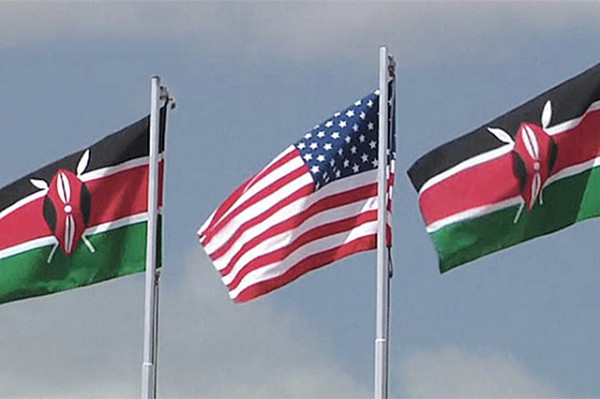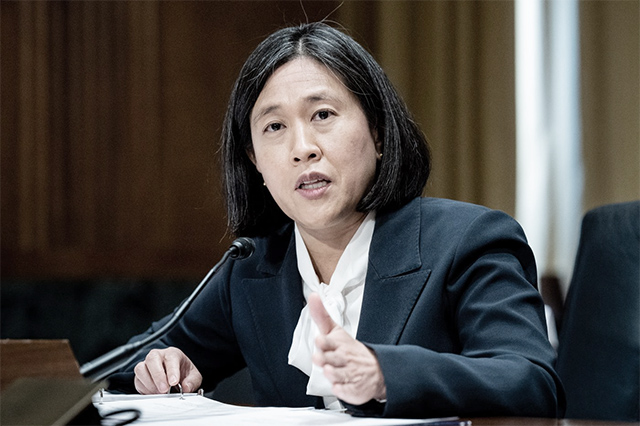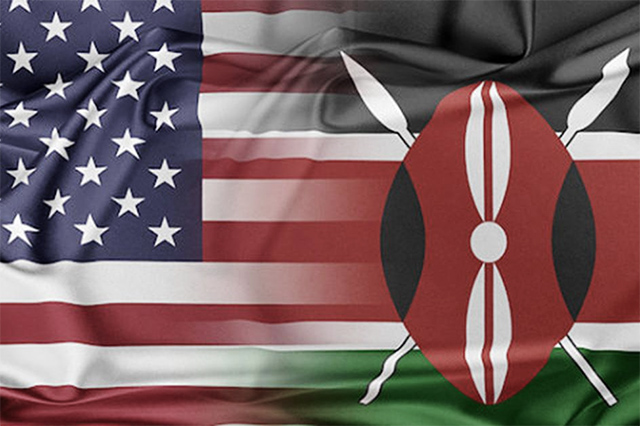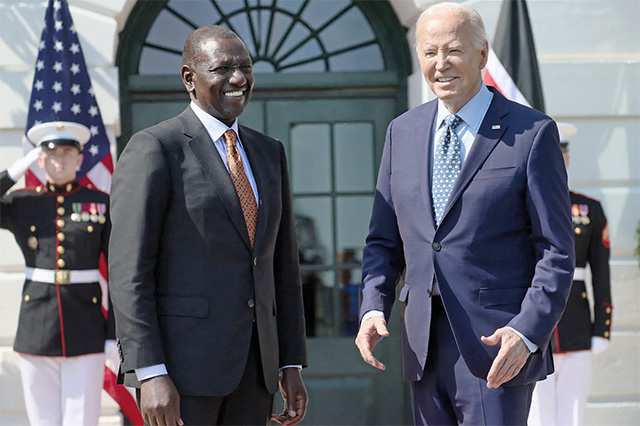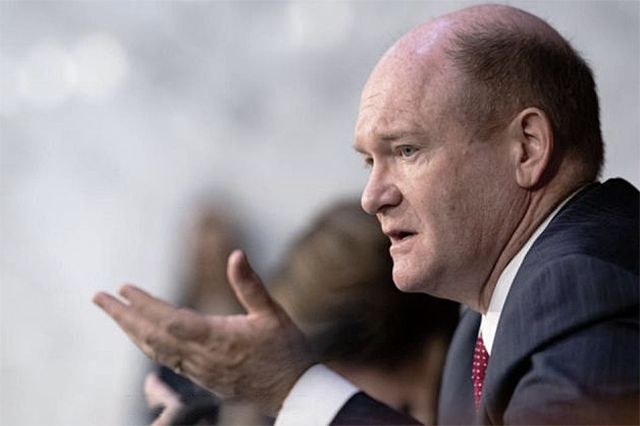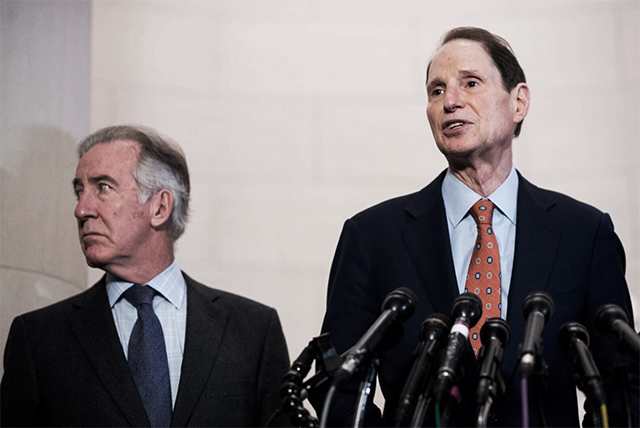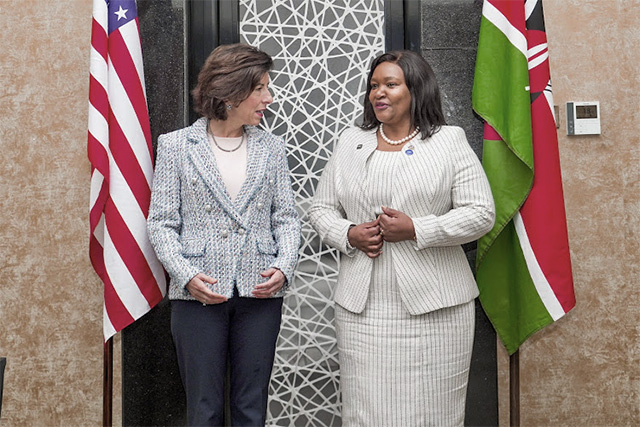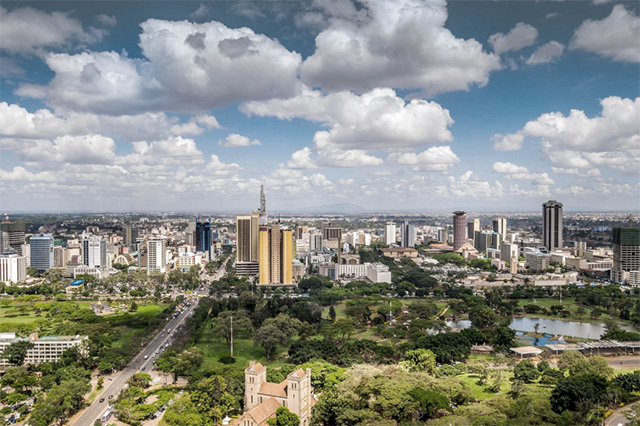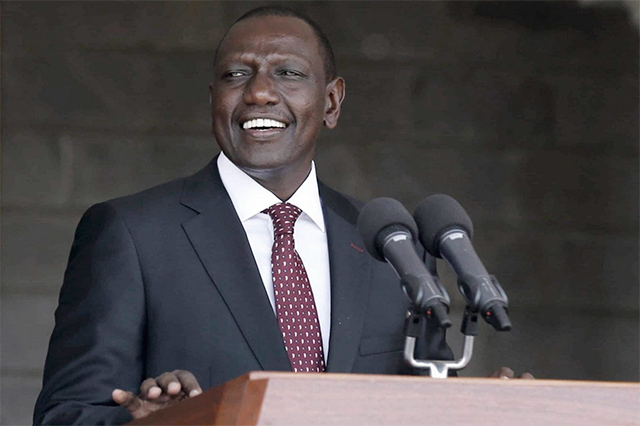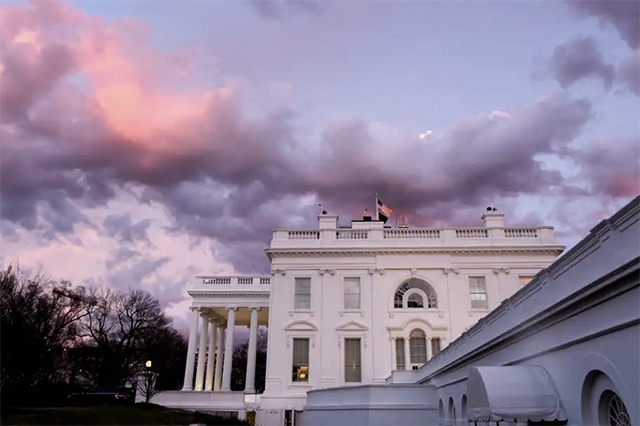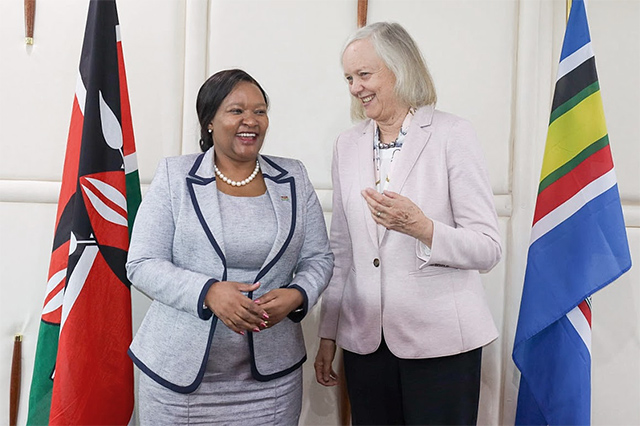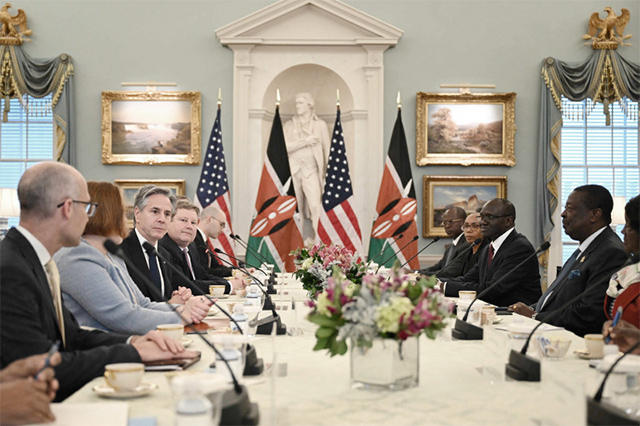'Kenya-US free trade talks are under way: what Nairobi must get right from start'
The United States and Kenya formally launched negotiations for a free trade agreement on 8 July 2020. With the US gearing up for presidential elections in a few months, these talks may not draw much global attention.
But as a prototype for evaluating the substance of future US-Africa trade relations, a lot rides on Washington using this deal to make a bold statement of its commitment to effective North-South free trade agreements.
The US is the third most important destination for Kenyan exports after Uganda and Pakistan, accounting for 8% of its total exports. Kenya exported goods worth US$ 527 million in 2018, primarily apparels, coffee and nuts. Its imports were mainly commercial aeroplanes and other spacecraft, polymers and medicaments. Kenya has a slim trade surplus that the US will probably be keen to balance.
Washington has a penchant for using free trade agreements to signal the status of partner states as regional strategic allies. Such agreements with Morocco, South Korea, Colombia and Bahrain were all intended to signal much deeper strategic alliances beyond trade.
For the European Union and China the Kenyan agreement further signals America’s intent for commercial expansion and competition in Africa. The principal objective is to secure duty free access for American industrial, apparel and agricultural goods in Africa. Its all about making American exports competitive.
US trade officials have described the Kenyan deal as a model for other African free trade deals. Terming Kenya a “strategic partner, regional leader and commercial hub” statements from both the US Trade Representative Robert Lighthizer and the US ambassador to Kenya Kyle McCarter highlight the seriousness with which Washington wants this deal done.
This vigour affirms President Trump’s strategy outlined by the 2018 US-Africa policy. But since the Kenyan deal is an initiative of President Trump, the palpable pressure to conclude agreement could be detrimental to Kenya’s interests. The pressure hampers Kenya more given the asymmetry of capacity between the two states.
Free trade agreements are protracted affairs which take more than a year to complete. The US-Morocco agreement, for instance, took 15 months. Talks with Peru (18 months) and Colombia (20 months) lasted even longer. The Kenya-EU economic partnership agreements took more than 10 years to conclude.
Additionally, there’s no guarantee that Trump will be in office come January 2021. For this reason, Kenya’s team in Washington should consider informally engaging the democrats in case the deal has to be concluded under President Biden.
Kenya’s negotiating objectives
It is my view that Kenya’s negotiations should be guided by four principal questions and objectives as follows:
Does the proximity of the November election in the US unduly compromise the quality of negotiations?
What are the prospects for renewal of the African Growth and Opportunity Act (AGOA) in 2025? If extended, would Kenyan exports not covered benefit from US tariff removal?
Can Kenyan negotiators defend against US pressure to liberalise industrial goods under the East African Community Sensitive List and
Can the US extend to Kenya the “qualified industrial zones” model to bolster US foreign direct investment in Kenya?
From a political perspective, a trade agreement makes sense. It shields Kenya from the uncertainties over the extension of the African deal and the vicissitudes of political party changes in Washington. As a trade tool, the merits of a free trade agreement depend a lot on the extension (or not) of AGOA after 2025 under President Trump or Biden.
More principally, whether democrats or Republicans win in November, the extension of the Africa market access law will depend on the extent to which sub-Saharan Africa states will be regarded as important flashpoints for US-China commercial competition in Africa.
Trump is certainly more combative in wanting to nullify China’s huge commercial advantage in Africa. But a Biden presidency would be more receptive to the appeals of the US Congress Black Caucus which champions the unilateral extension of AGOA. Because of the uncertainty about the whims of the US presidency, it is in Kenya’s interest to concurrently lobby US democrats on the importance of this deal in case of a Biden presidency.
If AGOA is not extended without a free trade agreement, Kenya’s three biggest exports to the US – apparels, macadamia nuts and cut flowers – would face duty increases of 5%, 0.5% and 4% respectively. This would undoubtedly negatively affect exports.
But if it is extended, and the US-Kenya agreement ratified by Congress, elimination of duties on Kenyan non-AGOA exports (mainly minerals) will not amount to much in terms of export enhancement.
Jordanian model
Constraints to Kenyan exports to the US are not primarily tariff based. From Kenya’s standpoint, therefore, these trade talks are less about tariff and trade, than they are about attracting foreign investment into Kenya. The most useful potential outcome will be the extent to which Kenya draws manufacturing foreign direct investment from the US and other states, into its economic processing zones.
To achieve this, Kenya should negotiate for liberal rules of origin requirements. Such rules should not unduly constrain investors to use only US or Kenyan inputs for Kenyan exports to qualify for the duty free entry into the US. A rules-of-origin threshold of no more than 30% value add should be the target.
As an investment vehicle, the Kenya US agreement should be modelled on the Jordanian “qualified industrial zones model” which increased bilateral trade between the two states tenfold since its inception in 2001.
This model permits foreign owned companies situated in select export processing zones to qualify for duty free exports into the US market. With apparel as Kenya’s principal target export, the success of its negotiating dexterity will be judged on how well it integrates the inputs and outputs of its export processing zones. An agreement that considers all apparel exports “Kenyan” irrespective of ownership and input source for a reasonable duration should be the target.
Finally, the US will no doubt be keen on Kenya’s liberalisation of agriculture and services as part of its ambition to compete with the EU as preeminent agricultural exporters. Every country keeps a short list of goods that it is allowed to protect either for infant industry protection or security reasons. Kenya’s highly protected commodities include wheat, matches, rice and cement which can attract customs tariffs of up to 75% in the case of certain types of rice.
My view here is that Kenya should grant the US the same agricultural exports conditions as those granted to the EU under the Economic Partnership Agreement. But at the same time, it should defend the continued protection of the “industrial” goods in the sensitive list such as cement, natural gas and most importantly worn clothing.
These should be protected for purposes of the modest infant industry already in existence in production of these products. But it could end protection for some agricultural products like wheat.
If properly negotiated the agreement has the potential to rapidly enhance Kenya’s foreign industrial investment and overall export volumes. To do so, Kenya must pay more attention to the role of this agreement as an investment attraction vehicle and not just a simple tariff centred ‘traditional’ pact.


